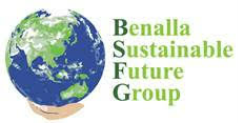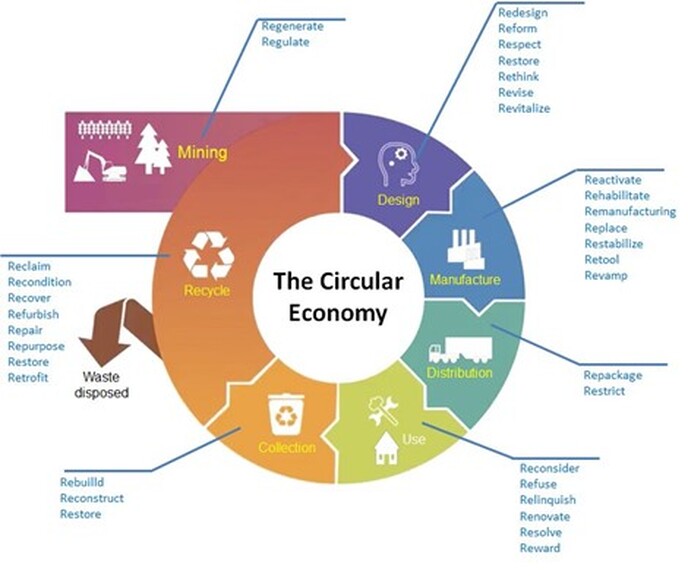The Circular Economy
|
A circular economy is based on the principles of ensuring that production and consumption systems contribute to sustainable development, including minimizing waste and pollution, reusing and recycling products and materials, regenerating natural systems, and other issues related to a sustainable lifestyle.
The growing emphasis in many countries of becoming more circular is inspired by 3Rs, "Reduce, Reuse and Recycle", a well-known concept in resource efficiency, that helps us "return" materials and resources to the lifecycle of a product, ensuring that we use less energy and produce less waste/pollution and emissions. Srinigas (2021) describes a number of often interrelated "R"s - beyond reduce, reuse and recycle - that we need to look out for, including regenerate, restore, redesign, reactivate, rehabilitate, repair, retool, relinquish, repurpose, restore, retrofit, and many more. Circular economies employ any of the "R"s listed here to create a closed-loop system, minimizing the use of resource inputs and the creation of waste, pollution and carbon emissions. A circular economy aims to keep products, equipment and infrastructure in use for longer, thus improving the productivity of these resources. The closed loop system of a circular economy looks at the life-cycle of a product or service - from mining of natural resources, to the design of products, manufacture, distribution, use, collection and recycling or final disposal - in order to form what is now popularly being advocated as a circular economy. |
The collection of Rs, more than just the original 3Rs - reduce, reuse, and recycle - illustrate the complex actions and stakeholders, of thinking itself, that is needed to transform an economy to become circular.
Citation Text: Srinivas, Hari, "Moving towards a Circular Economy: More than Just 3Rs!". GDRC Research Output - Concept Note Series E-097 January 2021. Kobe, Japan: Global Development Research Center. Retrieved from http://www.gdrc.org/uem/waste/more-3r.html on Friday, 14 May 2021
Resources and References:
The Australian Circular Economy Hub
Australasian Circular Textiles Association - ' Acknowledging the Theoretical, Engaging the Pratical"https://www.australiancircularfashion.com.au/acknowledging-the-theoretical-engaging-the-practical/
Video: Engineers related
New 2 Volume Book:
The Australian Circular Economy Hub
Australasian Circular Textiles Association - ' Acknowledging the Theoretical, Engaging the Pratical"https://www.australiancircularfashion.com.au/acknowledging-the-theoretical-engaging-the-practical/
Video: Engineers related
New 2 Volume Book:
|
|
Benalla Sustainable Future Group acknowledges the traditional owners of the land on which we live, work and meet, the Taungerang, Yorta Yorta and Bpangerang people
of North East Victoria, and pay our respects to their elders past, present and emerging.
of North East Victoria, and pay our respects to their elders past, present and emerging.




